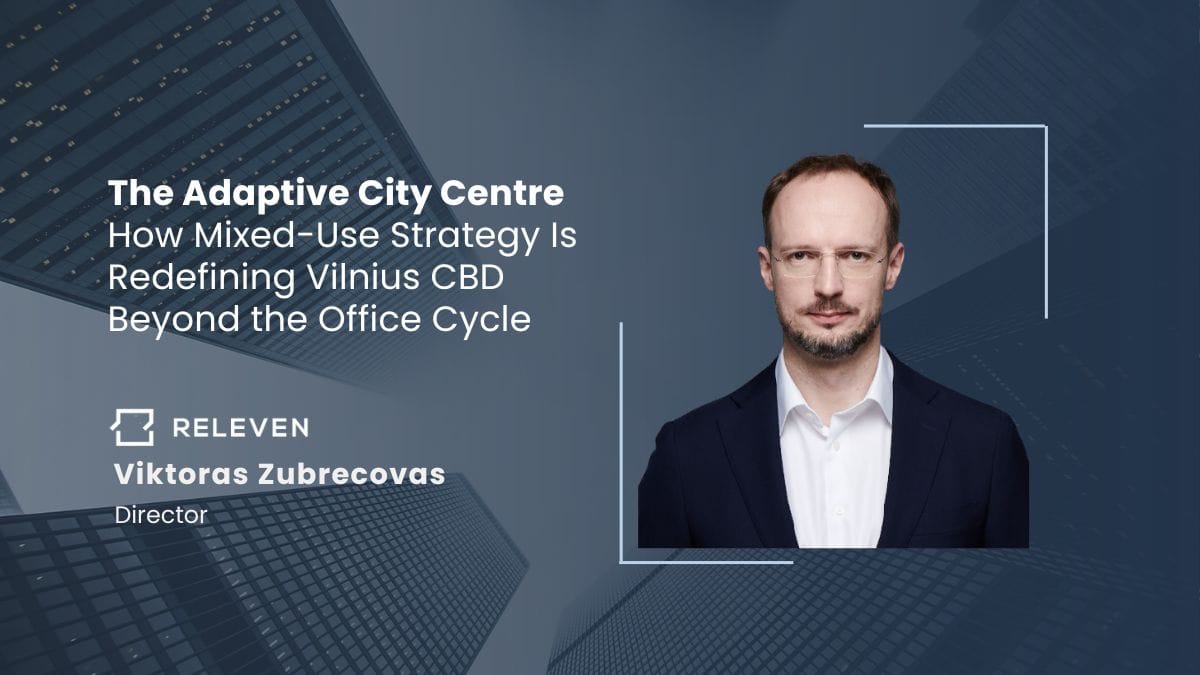If you’re wondering whether real estate is still a smart investment in 2025, you’re not alone.
As AI continues to disrupt traditional industries, digital assets remain volatile, and global currencies fluctuate under inflationary pressure, more investors are turning to what feels reliable: something tangible, time-tested, and resilient.
Real estate stands out as a unique investment class that combines long-term capital growth, utility, and consistent cash flow.
Unlike stocks or tokens, property gives you something you can touch, and more importantly, something that can generate passive income, protect your capital, and diversify your portfolio in today’s unstable economy.
Whether you’re building your first portfolio or expanding into global property markets like Dubai or London, real estate continues to deliver what modern investors value most: stability, leverage, and real-world impact.
In this article, we explore why property remains one of the best-performing asset classes in 2025 and how you can make it work for your long-term strategy.
Not sure if property is the right move for you?
Entralon advisors are here to help you think it through; no pressure, no sales pitch. Just a conversation about your goals, your options, and whether real estate makes sense for you in 2025.
The Investment Landscape in 2025: What’s Changed?
The investment world in 2025 looks nothing like it did five years ago. While emerging technologies have unlocked new asset classes and speculative opportunities, they’ve also exposed investors to heightened risk, increased volatility, and a new sense of uncertainty.
AI-Driven Volatility: The Double-Edged Sword
Artificial Intelligence is revolutionising entire sectors and not always in predictable ways. From algorithmic trading systems that react in microseconds, to AI-generated financial models that bypass human logic, the result is a market that’s faster, smarter… and often more unstable.
In late 2024, a machine-learning model misinterpreted central bank signals and caused a 6% intraday dip across tech stocks in under 20 minutes.
This kind of AI-driven market volatility is pushing long-term investors away from digital speculation and toward real-world assets.
Crypto & Stablecoins: Shaky Foundations
Once promoted as the future of money, digital assets are now seen by many as speculative instruments at best.
Bitcoin swung from $69,000 to under $25,000 between 2021 and 2023. Ethereum faced multiple security concerns. Even so-called “stablecoins” designed to maintain a 1:1 peg with fiat showed cracks.
Case in point: UST (Terra) lost its dollar peg in 2022, wiping out over $40 billion in value.
Investors burned by crypto crashes are now asking: “What’s the real value backing my asset?”
Fiat Currencies Under Pressure
Inflation hasn’t just been a headline; it’s been a lived reality. From the Eurozone to the U.S., inflation rates hovered around 5–8% for months on end. Interest rate hikes have tried to slow the spiral, but in doing so, they’ve made debt costlier and fiat weaker.
Purchasing power is shrinking. Savings accounts don’t beat inflation. Bonds struggle to keep up. That’s why inflation-resistant assets, like income-generating real estate, are drawing renewed attention.
In Times of Economic Uncertainty, Tangibility Matters
In a world where numbers on screens can disappear overnight, tangible assets offer something different: Weight. Presence. Permanence.
Real estate, unlike digital coins or volatile stocks, has structure, both physical and financial. You can rent it, live in it, refinance it, or sell it. It produces cash flow and grows in value over time.
In 2024, while most major indices dipped 7–12%, prime residential properties in Dubai and outer London rose between 3.5% and 6.2%.
That’s not just capital preservation, that’s performance.
Real estate doesn’t promise overnight riches. It promises something rarer: resilience. And in 2025, resilience is the new alpha.
Why Real Estate Still Wins: 7 Reasons That Matter
In a world full of volatility, few investments offer the combination of resilience, predictability, and long-term upside that real estate does, especially in global hubs like Dubai and London.
Here’s why property continues to outperform in 2025:
Tangibility & Security
Real estate is a physical asset; you can walk through it, renovate it, rent it, or live in it. Unlike stocks, crypto, or digital instruments, it doesn’t vanish in a flash-crash or system glitch.
During market downturns in 2023, tangible assets like property maintained value more consistently than tokenised equities or high-volatility funds.
In both Dubai and London, investor demand for tangible, titled assets has grown, especially from buyers looking for asset-backed security during currency devaluation or crypto exposure fatigue.
Appreciation in High-Growth Markets
Real estate doesn’t just hold value, it grows it.
In Dubai, average residential prices increased by 15.9% in 2023 alone, with hotspots like Dubai Marina and Business Bay seeing even higher gains.
In London, while the broader UK market faced cooling, West London and Zones 2–4 regeneration areas saw 3–6% year-on-year price growth, driven by international buyers and infrastructure investments.
Long-term appreciation in these markets isn’t speculative; it’s based on population growth, supply shortages, and government-backed development plans.
Want to own in a market that’s still growing?
Explore Entralon’s full list of high-growth projects in London, and find the property that puts your capital to work.
Passive Rental Income (with inflation-linked yield)
One of real estate’s most attractive features is monthly rental income, often indexed to inflation, making it a natural hedge.
In Dubai’s Jumeirah Village Circle (JVC), net rental yields for mid-range apartments hover around 6–8%, outpacing many global cities.
In Canary Wharf, net yields average 4.5–5.5%, with stable demand from corporate tenants and young professionals.
That means your property can pay you, not just grow in value.
Looking for properties that pay you every month?
Discover Entralon’s full listings in Dubai’s top rental zones.
Tax Efficiency (UK & UAE)
Tax treatment can make or break your investment strategy, and real estate offers unique advantages.
• In the UAE, there is no income tax or capital gains tax, making rental income and resale profits 100% yours.
• In the UK, tax rules favour property investors through mechanisms like capital gains exemptions on primary residences and deductible expenses for buy-to-let landlords (e.g., mortgage interest, repairs, agency fees).
In both markets, smart tax planning can significantly enhance your net returns, and Entralon helps you navigate that landscape.
Leverage: How Small Capital Can Control Large Assets
Real estate is one of the few asset classes where banks and institutions are willing to share the risk.
With just a 25–30% deposit, investors can access mortgage financing that allows them to purchase properties worth three to four times their capital, meaning you benefit from all the rental income and capital appreciation, while only putting in a fraction of the full price.
In Dubai, expats can secure up to 75% financing on off-plan projects, often with post-handover payment plans stretching over multiple years.
In London, international buy-to-let investors can typically access 60–70% loan-to-value (LTV) mortgages, enabling global buyers to enter the UK market without committing full capital upfront.
This ability to control a high-value, income-producing asset with relatively low initial investment is what makes real estate leverage so powerful, especially in appreciating markets.
Diversification Against Market Volatility
Property doesn’t move in sync with stocks or crypto. That makes it an ideal hedge during downturns.
In 2022–2023, while global equities dropped by 12–18% and crypto saw 30–50% losses,
real estate in Dubai remained resilient, with zero quarters of negative average returns during that period.
Having property in your portfolio reduces total exposure to systemic shocks and provides a steady anchor in uncertain times.
Emotional + Functional Value (Dual Use)
Unlike other assets, property can be more than just a number on a screen.
A home in Palm Jumeirah isn’t just an investment; it can be your holiday retreat.
A flat in Ealing Broadway might house your children while studying in London, before turning into a rental asset.
The emotional and functional utility of real estate adds a layer of value that no stock or coin can offer.
Whether you’re investing for yield, growth, diversification, or peace of mind, real estate delivers more than returns. It delivers relevance.
What Makes Property Different from Stocks, Bonds, and Crypto?
With so many investment options in 2025, from tech-driven equities to high-risk digital currencies, it’s natural to wonder: Which assets truly offer safety, income, and long-term value?
If you’re seeking low-risk investments that are tangible, income-generating, and inflation-resistant, real estate stands in a league of its own.
Here’s a comparison of how property stacks up against stocks and crypto:
Final Thought
Property Still Wins, But Only With the Right Lens
From resilience in times of economic uncertainty to the power of passive income and the emotional value of ownership, real estate remains one of the most compelling investment choices in 2025. Unlike stocks or crypto, it offers stability, utility, and long-term upside, especially in globally dynamic markets like Dubai and London.
But let’s be honest: property isn’t a perfect market. For many buyers, especially first-timers or international investors, the experience can feel confusing or even risky. Why?
- You’re often navigating through aggressive promotions,
- Facing biased agents who push deals that serve their commission, not your returns,
- And seeing fragmented listings that hide better opportunities just out of reach.
This is exactly why we built Entralon. A platform designed not to push, but to clarify. Not to sell, but to support.
At Entralon, our mission is simple:
To help you understand the full market, clearly, neutrally, and with zero pressure.
We don’t charge you anything, not for advice, not during negotiations, and not after you close.
What we offer instead:
- A complete view of all off-plan and under-construction properties across Dubai and London
- Neutral advisory that compares projects based on your priorities
- And a promise: that whatever you decide, you’ll do it with clarity, not confusion
When you see the full picture, you make better choices. Entralon is here to give you exactly that.
Want to see what the full picture looks like?
Head over to Entralon and explore the entire market
FAQ
1. Is property still a good investment in 2025?
Yes. Despite market volatility and inflation, real estate remains a stable and income-generating investment, especially in growing markets like Dubai and London.
2. What is the average rental yield in Dubai in 2025?
In 2025, rental yields in Dubai vary by area, with mid-range apartments in Jumeirah Village Circle (JVC) offering around 6–8% net return annually.
3. How does real estate compare to crypto in terms of risk?
Real estate is considered lower risk than crypto. Property is a tangible, income-producing asset, while crypto is highly volatile and speculative.
4. Are there tax benefits for property investors in the UAE and UK?
Yes. The UAE offers zero income or capital gains tax, while the UK allows deductions on mortgage interest, repairs, and capital gains exemptions for primary residences.
5. What makes Entralon different from a regular property agent?
Entralon offers unbiased, commission-free property advice. It lists all off-plan projects in Dubai and London, helping buyers compare transparently without sales pressure.























Discussion